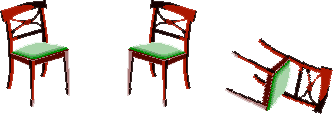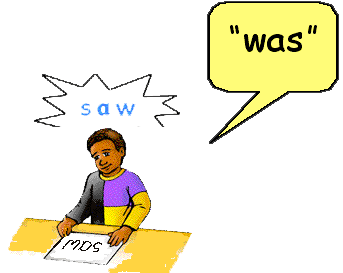![]() Reversals
Reversals
What About Reversals?
Letters and numerals are unique.
For young children, almost all objects they see are ‘reversible.’

A chair . . . . . is a chair . . . . . is a chair,
whether it’s pointing this way or that, or even upside-down.![]()
But when it comes to reading and writing, children need to learn this extraordinary rule:
Direction matters.
To help your child practice the ‘direction matters’ rule, try the Directional Training pages, under the Reversals section here in The Reading Treehouse.
![]()
Seeing V.S. Naming:
Many parents and teachers become concerned about a student’s ‘reversals.’
They are probably confusing the ability to ‘see forward’ with the ability to name the letter-sound, or the word.

It’s one thing to see the word correctly.
It’s another thing to name the word correctly.
The way to determine if a child is seeing correctly is to ask them to point--only point.
Use the Directional Training, under the ‘Reversals’ section at this web site.
![]()
Here is a more advanced example:
Say: “See this?” Show: b
Say: “Find one here.” Show: d d b
[Have child point]
This pointing task is a visual task--a ‘seeing forward’ task.
![]()
Can your child learn to do the Directional Training pages?
If so, then you have evidence that they can see the directions, forward and backward, correctly.
But when you ask "What’s this sound” or “What’s this word?"
--that is a language task: naming.
When we ask students to name what they see, we are not just checking visual ability, but naming ability.
![]()
Don’t ask a child to name something, and then assume they are seeing it incorrectly just because they name it wrong!
Did you ever have trouble learning the names of twin sisters or brothers?
Try the Naming Twins experience, next at the Reversals section.
![]()
Continue The Shortcut ~ The Whole Treehouse
More on this topic: Naming Twins



